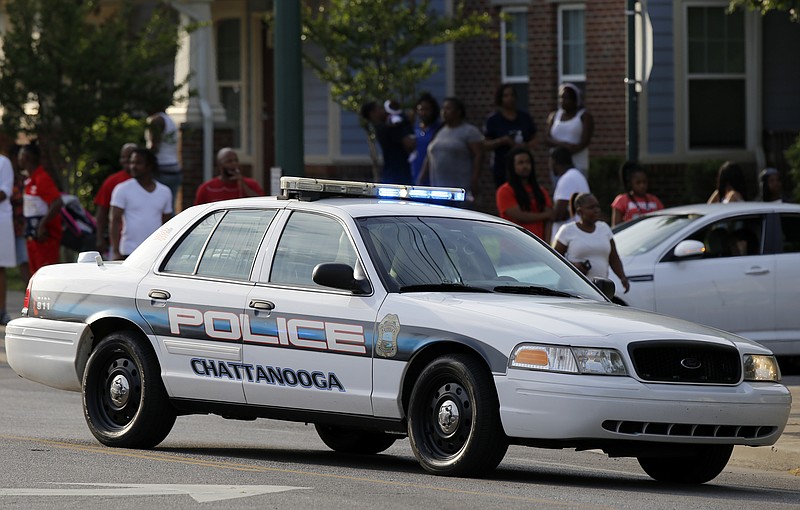NASHVILLE - A controversial Tennessee bill that would halt cities' independent police oversight boards from exercising subpoena powers to investigate complaints against officers passed a key House panel Wednesday.
The Republican-led Judiciary Committee approved the measure on a 13-6, party-line vote over the objections of Democrats, several of them from Nashville. It's been referred to the Calendar and Rules Committee for final House floor action.
Sponsored by Rep. Michael Curcio, R-Dickson, the bill is aimed at Nashville, where voters last fall approved a charter amendment creating an independent oversight committee whose appointed members were to have subpoena powers.
The bill also would impact the city of Knoxville, where a similar police oversight board with the ability to subpoena records has operated for years.
But it wouldn't affect the city of Memphis' oversight board because it relies on the elected city council there to issue subpoenas on the panel's behalf, according to Curcio.
And that arrangement might draw notice in Chattanooga, where several city council members are considering plans to create an oversight board to field complaints even as Republican lawmakers crack down on Nashville and Knoxville.
Curcio told the Times Free Press in one of several interviews that his and other Republicans' concern is with Nashville's approach.
"The way they derive their subpoena power is they reference the existing subpoena power of the Metro Council," he said.
But Curcio noted last week after the bill emerged from a House subcommittee that he doesn't have issues with how Memphis' board operates.
"I think we made it clear in 90 minutes worth of testimony that this General Assembly supports the concept of community oversight, that's exactly what we're trying to encourage and make sure it's done in a way that encourages and adheres to best practices," Curcio said.
The lawmaker added, "I would encourage any community that's looking at that to follow best practices so we've got the best boards in the business."
Asked if Tennessee's municipal elected councils and commissions have subpoena powers, Curcio said, "it's my understanding that they do. So does the General Assembly."
And on the issue of whether he does not object if the elected officials exercise their subpoena powers on a board's behalf, Curcio replied, "they're elected by the people. Absolutely."
"I think that's a piece of it," he said when asked about the issue being that the oversight boards are unelected. "I think you heard Leader [William] Lamberth speak clearly about unelected tribunals. So while [oversight boards] serve a very, very important role, it is truly oversight. That is what it's intended to be. That's the stated purpose of the board. And so let's not try to turn it into something they are not."
Lamberth, a former assistant procecutor, has said he believes elected prosecutors and county grand juries are an appropriate venue.
The bill also targets Nashville's specifications for the composition of its board's membership.
The Senate bill, sponsored by Judiciary Committee Chairman Mike Bell, R-Riceville, is scheduled to be heard next week.
Debate Wednesday on Curcio's House Bill 658 was often heated. Rep. Bo Mitchell, D-Nashville, noted that Lamberth had previously charged Metro Nashville was "living in a fairytale land" by creating the 11-member appointed board.
Describing Nashville as the "economic engine of this state" on which rural areas depend for tax revenues, Mitchell charged Republicans with "trying to circumvent voters of Davidson County" and not giving anyone an opportunity "to work this out."
Nashville's police union fought fiercely against the Metro Nashville charter amendment.
Curcio said the issue was brought to him by constituents and "colleagues."
"What does the Tennessee code say? I was troubled to find it was nothing," he said. "As we know it's important as a state to create standards and that we adhere to best practices."
He said his bill relies on policy recommendations made by the U.S. Department of Justice's National Institute of Justice.
But Mitchell questioned why Republican lawmakers are yet again seeking to intervene in Nashville's business.
The city's police oversight board might "be the biggest disaster known to mankind or it may just work out just fine," he said. "They haven't even had a meeting yet before you brought this piece of legislation."
Contact Andy Sher at asher@timesfreepress.com or 615-255-0550. Follow him on Twitter @AndySher1.
